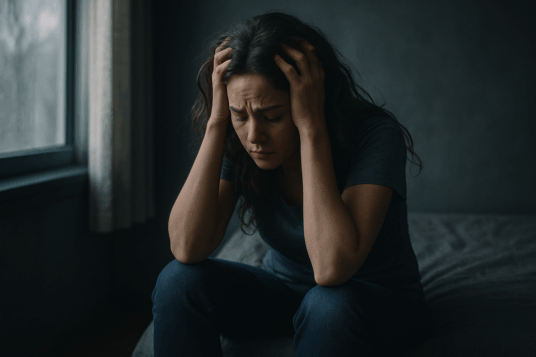Worry is not merely an emotional state. It is a theological statement. It is the confession of the mind that God either does not care, cannot act, or simply does not exist.
The modern mind has been trained to fear what it cannot predict or control. The attention economy has weaponized this fear, feeding us a constant stream of worst-case scenarios. It distorts sleep, clouds judgment, and damages relationships. It shows up in therapist offices, on social media, in church sermons, and in pharmaceutical ads.
The word “anxiety” now covers a wide range of experiences—some physical, some emotional, many deeply spiritual. But in our time, there’s a temptation to flatten it into one of two extremes: either it’s a purely medical issue to be treated with drugs, or it’s an emotional one to be managed through mindfulness and therapy. Both lenses miss something vital. The truth is more complex—and more hopeful.
The Many Faces of Anxiety
Not all anxiety is the same. The Scriptures, history, and common sense suggest we should draw distinctions between different kinds of distress:
- Existential anxiety is the unease of being human in a fragile world. It shows up when a person stares into the vastness of the future and realizes their limits.
- Clinical anxiety is persistent, disproportionate, and often debilitating. It may involve dysfunctions in the body: adrenal overload, hormonal imbalances, chronic inflammation, or nervous system dysregulation.
- Spiritual unrest often masquerades as anxiety but is rooted in the soul’s alienation from God, the weight of unconfessed sin, or the fear of death and meaninglessness.
Lumping all three into one category does harm. It leads the anxious man to take a pill when he ought to pray. Or it shames the woman whose body is breaking down under years of trauma and poor nutrition. Wisdom requires us to slow down and ask: What kind of anxiety am I actually dealing with?
The Physiology of Fear
Anxiety is not just in the head—it is in the body. It begins as a physiological response to threat: the adrenal glands release cortisol, the sympathetic nervous system activates, and heart rate increases. But the problem doesn’t always start in the brain. Poor sleep, vitamin D deficiency, thyroid dysfunction, processed food, sedentary lifestyle, and limited exposure to sunlight—all wear down the body and cloud the mind.
You are an embodied soul. What you fear, imagine, or dwell on shapes your body. Many live in a constant rehearsal of future disasters, trying to solve problems that haven’t yet come. Anxiety thrives on the illusion of control. It feeds on the refusal to trust divine providence.
When the body breaks down, the mind often follows. So while anxiety is never only physical, treating the body wisely—through sleep, nutrition, exercise, and medical care—is quite helpful. It is an act of stewardship. Still, physical care alone will not settle the anxious soul. For that, the mind must be renewed.
Jesus’ Words
In Matthew 6, Jesus warns against the anxious mind. He points to birds and lilies. Birds don’t stockpile. Lilies don’t strategize. Yet God provides for them.
Worry is not just unpleasant—it is misplaced responsibility. It fixates on what lies outside your authority: what others think, what tomorrow brings, what might go wrong. That is not your domain. That belongs to God. And so the antidote to anxiety is the recognition that you are not sovereign. And you don’t have to be.
Job’s Experience
Job demanded answers, and what did God give him? A series of questions. “Where were you when I laid the foundations of the earth?” “Can you bind the chains of the Pleiades?”
God does not owe explanations.
The lesson was not just that God is mighty, but that man is small. Our judgments are limited. Our view is shallow. The questions of God—drawn from nature, the stars, and wild creatures—confront us with our frame: dust.
That’s what every anxious soul needs to remember. You don’t need more control—you need to surrender it. When anxiety threatens to control you, the question to ask is not “Why is this happening?” but “Who governs all of it?” That becomes the turning point.
If you try to manage your anxiety by gaining more control, you will fail. But if you surrender control and trust God’s providence, you will find rest. Not always emotional ease, but spiritual rest. The kind that holds steady when feelings do not.
Final Word
To be anxious is to live like an atheist in the heart. To worry is to elevate your concerns above God’s character. It is to act as if everything depends on you. But it doesn’t. You are not God. And thank God for that.
You are a creature, not the Sovereign Creator. You have limits. You have a Father in heaven who knows what you need.
So bring Him your fears. Name your concerns. But do not let them rule you. Take every thought captive.
And if anxiety lingers, attend to your body. Ask for help. See a doctor if necessary. But never forget the deeper need—your mind was made to trust. Your soul was made to rest in God.
